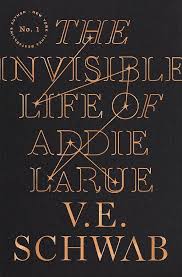Chapter XIII
byChapter XIII opens with Addie in Paris on July 29, 1720, as she prepares a modest yet significant dinner in a reclaimed attic she calls her own. This attic, situated atop a dilapidated building, represents her rare attempt at establishing a semblance of normalcy amidst the chaos of her immortal life. Addie, having long been living a life filled with anonymity and pain, has not had a chance to make meaningful connections. Her meal—a simple spread of warm bread, cheese, pork terrine, and wine—seems like a small act of rebellion, a moment where she asserts some control over the choices in her life. The room she has carved out for herself, filled with a bed, a chest of stolen clothes, and a collection of trinkets she has accumulated throughout the years, represents the only place where she can experience some form of comfort. Although her life has been marred by endless wandering, this small space offers her refuge, a sanctuary from the cruelty of her curse.
In a symbolic gesture, Addie dresses herself in russet silk, preparing for a confrontation with Luc, the dark force that controls her existence. The upcoming interaction with him marks an anniversary of their ongoing, strained relationship. Addie rehearses sharp retorts in her mind, strengthening herself for the encounter, a battle of wits and will. Luc, who granted her immortality in exchange for her soul, has been absent from her life for four years. This absence is something Addie both resents and secretly yearns for—resenting the power he holds over her, yet feeling an undeniable pull to him. As she waits, a mixture of anger, anticipation, and frustration churns within her. Yet as the evening stretches into the night, the realization slowly dawns on her that Luc will not show up.
The hours pass with no sign of him, and Addie’s anticipation slowly morphs into despair. The significance of their anniversary becomes a cruel reminder of her perpetual isolation, one more year of unfulfilled promises and unspoken pain. This time, his absence feels like an even deeper betrayal. She had waited for this moment for so long, and the silence surrounding her now amplifies her feelings of abandonment and loneliness. The room that once felt like a safe haven now seems to mock her, its walls now echoing with the emptiness of her existence. Addie’s brief hope for a reprieve, for a moment of connection, is dashed, and she is left in the crushing weight of reality—her curse, her solitude, and her unyielding fight for a life that has been stripped of meaning.
Unable to contain her frustration, Addie lashes out in a violent outburst. She destroys the meal she had so carefully prepared, ripping apart her silk dress and smashing the wine bottle against the wall. But no matter how much she tries to destroy her surroundings, her curse ensures that nothing leaves a lasting mark. Her cuts heal instantly, and the broken glass on the floor pieces itself back together, a cruel reminder of her inability to affect the world in any meaningful way. Even in her anger, Addie is powerless. The things she destroys are rebuilt, and the wounds she inflicts on herself are erased. Her rage, born from the crushing weight of immortality, becomes a scream directed at Luc, at her own inability to escape her eternal existence, and at the painful reminder that her desires and frustrations mean nothing in the grand scheme of time.
Sitting amidst the debris of her shattered hopes, Addie reflects on the years ahead—centuries more of loneliness, of wandering through life, leaving no trace behind. Her thoughts drift to the sea, and she remembers Luc’s haunting metaphor of erosion—the way the sea wears down the hardest rocks over time. She sees her life in the same way: each day chipping away at her, slowly eroding her sense of self and her connection to the world around her. Time, which for most people is a fleeting concept, is a prison for Addie, an unrelenting force that wears away at her spirit and soul. The passage of time, instead of being a gentle flow, is a brutal tide that relentlessly wears her down, leaving nothing but the remnants of what she once was.
The metaphor of the sea becomes a symbol of Addie’s enduring struggle—her life defined by time’s inexorable flow, her essence chipped away by the years that stretch on without end. As the night stretches on, Addie’s thoughts turn inward, confronting the unbearable reality of her immortality. The loneliness and isolation that have been her constant companions for centuries feel all the more acute in these moments of reflection. The chapter concludes with a deep and painful recognition: the passing of time, while a gift to others, is her curse, and it brings with it not just the loss of memories but the inevitable erosion of her soul. The sea’s endless erosion of rock is the perfect metaphor for the constant erosion of her hope, her humanity, and her very essence, as she remains trapped in a world that moves on without her.


